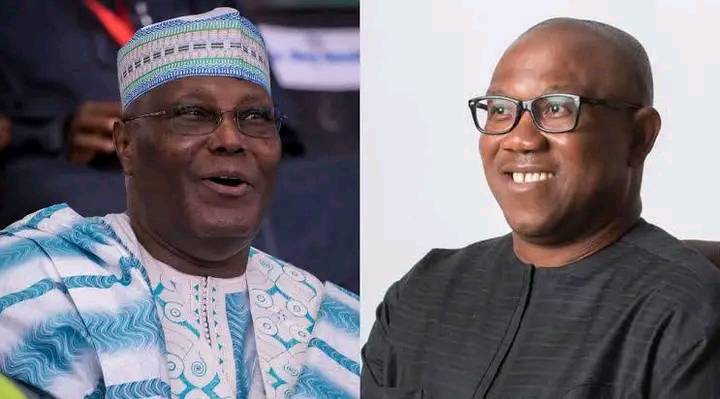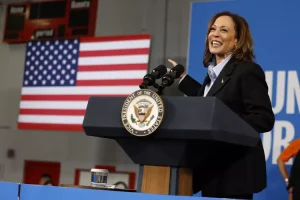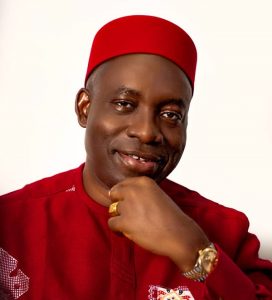Atiku Offers Peter Obi VP Slot, Pledges One-Term Presidency in 2027 Coalition Bid
In what may be a dramatic reconfiguration of Nigeria’s opposition political landscape ahead of the 2027 general elections, former Vice President Atiku Abubakar has reportedly offered Peter Obi, the 2023 presidential candidate of the Labour Party, the vice presidential slot on a proposed coalition ticket. According to reliable sources, Atiku has also pledged to serve only a single term if elected, with the intention of handing over power to Obi thereafter.
The PUNCH reports that the offer was made during a private meeting held earlier this year in the United Kingdom between the two prominent politicians. Multiple sources familiar with the development confirmed the meeting and the content of their discussions, which centred on forging a political alliance capable of unseating the All Progressives Congress (APC) administration led by President Bola Ahmed Tinubu.
“Atiku and Obi met earlier this year in the UK. That was where Atiku first mooted the idea of a coalition and urged Obi to be his running mate. Obi then asked for time to think it over and consult his loyalists,” one source revealed.
Another insider disclosed that subsequent engagements have pointed to Obi’s willingness to accept the proposal. “Recent developments show that Obi has accepted to be Atiku’s running mate, and Atiku has also agreed to serve a single four-year term and hand over to the former Anambra State governor. They have both agreed to sign a written agreement if necessary. Obi is trying to get the buy-in of his loyalists before this is formally announced.”
This development evokes memories of the 2019 general elections, when Obi ran as Atiku’s vice-presidential candidate under the platform of the Peoples Democratic Party (PDP). The pair lost that election to the incumbent APC government, led by then-President Muhammadu Buhari.
Now, with both the PDP and the Labour Party facing internal crises and fragmentation, discussions have reportedly shifted towards the possibility of using a neutral platform. The African Democratic Congress (ADC) has emerged as a frontrunner in this regard.
“The Social Democratic Party (SDP) was initially considered, but it seems the APC has also infiltrated the party,” a source familiar with the matter stated. “So, they are tilting towards the ADC. Some of the loyalists have been meeting with the ADC leadership, and others have quietly joined the party. If things do not favour them in LP and PDP, they may join ADC.”
YOU MAY READ
Atiku Abubakar and Mr. Peter Obi at American University Yola for the 16th founder’s day and 20th anniversary celebrations.
Although Atiku’s media aide, Paul Ibe, declined to confirm the details of the reported agreement between the two leaders, he acknowledged that discussions about forming a coalition are ongoing. “I know that His Excellency, Atiku Abubakar and Peter Obi have been talking about the coalition. I cannot speak on the specific agreement they have reached. All I can tell you is that both of them are focused on ensuring that they build a viable coalition that will be robust enough to accommodate diverse Nigerians to unseat the clueless APC government in 2027.”
Peter Ahmeh, the National Secretary of the Coalition of United Political Parties (CUPP) and a close ally of Peter Obi, also refrained from confirming the one-term pledge allegedly made by Atiku. However, he reaffirmed Obi’s commitment to the Labour Party and its vision.
“No comment on this one, until I speak with my oga,” Ahmeh said. “My position on this remains that for us to defeat the APC, we must follow the rules of engagement so we don’t allow Tinubu to become the landlord in the southern part of Nigeria when we have somebody who can defeat him effortlessly. We are in the LP as we speak, and that is the option available to accommodate everyone because you cannot sleep in a hostile environment and expect to succeed.”
Meanwhile, Yunusa Tanko, the National Coordinator of the Obedient Movement—a grassroots coalition of Peter Obi’s supporters—denied knowledge of any such arrangement. “As far as I am concerned, after I met with him in Benin, there was nothing of this nature on the table,” Tanko told reporters.
Ralph Nwosu, the National Chairman of the African Democratic Congress, confirmed his party’s involvement in ongoing coalition talks but declined to specify whether Atiku or Obi had directly engaged them. “The ADC leadership has held conversations with all major stakeholders in the coalition drive and even people in government — that is, even people in the APC,” Nwosu stated.
Political analysts believe that a coalition between Atiku and Obi could dramatically alter the political calculations ahead of the 2027 elections. Atiku, a veteran of several presidential contests, commands a broad following in the North and within the PDP establishment, while Obi, with his appeal to the youth and middle-class urban electorate, particularly in the South-East and parts of the South-South, brings a complementary strength to the table.
However, such a coalition would not be without challenges. Reconciling differences between their respective parties, negotiating leadership roles, and managing the expectations of their various political bases are hurdles that could derail the alliance if not handled delicately.
Both the PDP and LP have, in recent months, been embroiled in leadership tussles and internal realignments. For Atiku, who has contested the presidency multiple times without success, this might represent a final shot at power. For Obi, it could be a strategic step toward the presidency in 2031 under a broader coalition umbrella.
YOU MAY READ
BREAKING: Atiku to Lead Coalition of Political Leaders to Hold Press Conference Today by 10:00 AM at the Shehu Musa Yar’adua Centre in Abuja, Over President Tinubu’s Declaration of State of Emergency in Rivers State
Yet, critics argue that any promise of a one-term presidency, however well-intentioned, remains non-binding and susceptible to the shifting sands of Nigerian politics. “What happens if Atiku gets into power and changes his mind?” one political observer questioned. “We’ve seen such promises before.”
Nevertheless, the momentum behind a united front against the ruling APC appears to be gathering pace. Within opposition circles, there is a growing consensus that fragmented efforts will only ensure continued APC dominance. As such, the coalition talks, even if still in a nascent phase, could gain more traction in the months ahead.
For now, neither Atiku nor Obi has publicly confirmed the reported agreement, and both camps continue to maintain strategic ambiguity. However, insiders suggest that a formal announcement could come before the end of the year, possibly after internal consultations are concluded and a suitable platform is agreed upon.
The coming months will be crucial for the Nigerian opposition. Whether Atiku and Obi can truly forge a working alliance capable of dislodging the APC in 2027 remains to be seen. What is clear, however, is that conversations are ongoing at the highest levels, and the political chessboard is already being rearranged for the battles to come.
As Nigerians look ahead to the 2027 elections, this emerging coalition—if it materialises—could significantly reshape the country’s political future, offering both an opportunity for renewal and a test of unity for the fragmented opposition.





